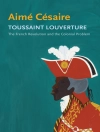Seminar paper from the year 2012 in the subject Cultural Studies – Canada, Mc Gill University, course: Ethnicity and Public Policy, language: English, abstract: Brigitte Rabe was a German woman who survived the Second World War and who, by immigrating to Canada, had tried to leave behind memories of war and loss. Like many other Germans, Brigitte wanted to get out of a disintegrating home, “that’s really the reason why [she] left”. Most German ethnic immigrants had been affected by Nazi resettlement schemes, were part of the flight to the West in the wake of German defeats, and shared the disorientation of postwar homelessness in a smaller West Germany.
During the First and Second World War, German immigrants were sent to internment camps; German newspapers were banned and the use of German in public space was prohibited. Yet, German immigration was encouraged as the Mackenzie government needed industrious workers and farmers to plow the field and build railways in the Prairies. The tendency to associate German immigrants as potential members of the Nazi regime thus declined. Moreover, German immigrants were welcomed as hard and industrious citizens as part of an initiative to unite Western Europe against communism.
This essay argues that German Canadians have integrated themselves by learning to change and adapt their cultural and ethnic identity. To do so, the following essay will analyze the historical process of German immigration to Canada before and after the First World War, during the Second World War and in the postwar period, and finally examine how sociological and cultural factors have contributed to shape the German Canadian identity.
De Zhong Gao
The native country abroad [PDF ebook]
The native country abroad [PDF ebook]
قم بشراء هذا الكتاب الإلكتروني واحصل على كتاب آخر مجانًا!
لغة الإنجليزية ● شكل PDF ● ISBN 9783656344445 ● حجم الملف 0.5 MB ● الناشر GRIN Verlag ● مدينة München ● بلد DE ● نشرت 2013 ● الإصدار 1 ● للتحميل 24 الشهور ● دقة EUR ● هوية شخصية 3962469 ● حماية النسخ بدون












